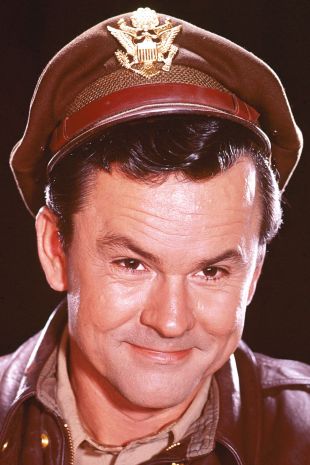Bob Crane, a name that resonates with fans of classic television, was an American actor, drummer, radio personality, and disc jockey best known for his role as Colonel Robert Hogan in the CBS sitcom Hogan's Heroes. For six seasons, from 1965 to 1971, Crane captivated audiences with his portrayal of the charismatic leader of a group of World War II prisoners. Under the noses of their oblivious German captors, Hogan and his team executed daring acts of espionage and sabotage, bringing laughter to millions of viewers worldwide.
The Tragic End of Bob Crane
In a dimly lit first-floor apartment on June 29, 1978, in Scottsdale, Arizona, the world was shocked by the discovery of Bob Crane's battered body. The 49-year-old actor was found shirtless, sprawled in bed with severe injuries above his left ear. Despite his fame and success, Crane's life ended tragically, leaving behind unanswered questions about his murder. To this day, the case remains unsolved, shrouded in mystery and speculation.
Crane's easy smile and affable demeanor on screen masked a complex personal life. He was known to struggle with what many now recognize as sexual addiction, a condition that may have contributed to the circumstances surrounding his untimely death. His relationships with women were often tumultuous, and he reportedly enjoyed documenting intimate encounters, further complicating the investigation into his murder.
A Legacy Beyond Television
Born Robert Edward Crane on July 13, 1928, in Waterbury, Connecticut, Crane's career spanned various media before he became a household name. Before starring in Hogan's Heroes, he worked as a disc jockey and radio personality, honing his skills in entertainment. His versatility allowed him to connect with audiences both on and off-screen, making him a beloved figure in American pop culture during the 1950s through the 1970s.
Despite his tragic end, Crane's influence extends beyond his acting career. His story serves as a poignant reminder of the pressures faced by public figures and the importance of addressing mental health and addiction issues openly. Today, discussions about his life and legacy continue to spark interest among historians, psychologists, and fans alike.
About the Bob Crane Community Center
In Upper Arlington, Ohio, the Bob Crane Community Center stands as a tribute to the late actor's impact on the community. Established through a collaborative effort between local organizations and private donors, the center offers a variety of amenities designed to enrich the lives of its visitors. Open seating areas, a café, and an indoor play area welcome all who wish to enjoy its welcoming atmosphere.
The facility also serves as a hub for physical therapy and rehabilitation services, partnering with institutions like The Ohio State University to provide cutting-edge care. By emphasizing excellence in research, education, and patient care, the center aims to improve lives while honoring Bob Crane's memory.
Exploring Bob Crane's Artistic Side
Lesser-known aspects of Bob Crane's life include his passion for art. As an artist, Crane created stunning landscape paintings that captured the essence of rural scenes across different seasons. His work reflects a deep appreciation for nature and tranquility, offering a glimpse into the quieter side of a man often associated with high-energy performances.
For those interested in exploring his artistic endeavors, visiting his website provides access to a portfolio showcasing his unique style and technique. Fans of his acting can appreciate another dimension of his creative talents, revealing a multifaceted individual whose contributions extended far beyond the silver screen.
Job Opportunities at the Bob Crane Community Center
The Bob Crane Community Center is always looking for passionate individuals to join its team. Available positions include part-time roles with flexible hours, competitive wages, and paid training. Shifts vary, starting as early as 5:00 AM or extending as late as 10:15 PM, ensuring opportunities for people with diverse schedules.
Working at the center offers more than just a paycheck; it provides a chance to contribute to a vibrant community space dedicated to fostering connection and well-being. Employees enjoy a supportive work environment where collaboration and creativity thrive.
In conclusion, Bob Crane's life and legacy remain a fascinating subject for exploration. From his groundbreaking role in Hogan's Heroes to his enduring influence on communities today, his story continues to inspire curiosity and reflection. Whether through art, advocacy, or community engagement, Crane's impact persists, reminding us of the complexities and richness of human experience.

